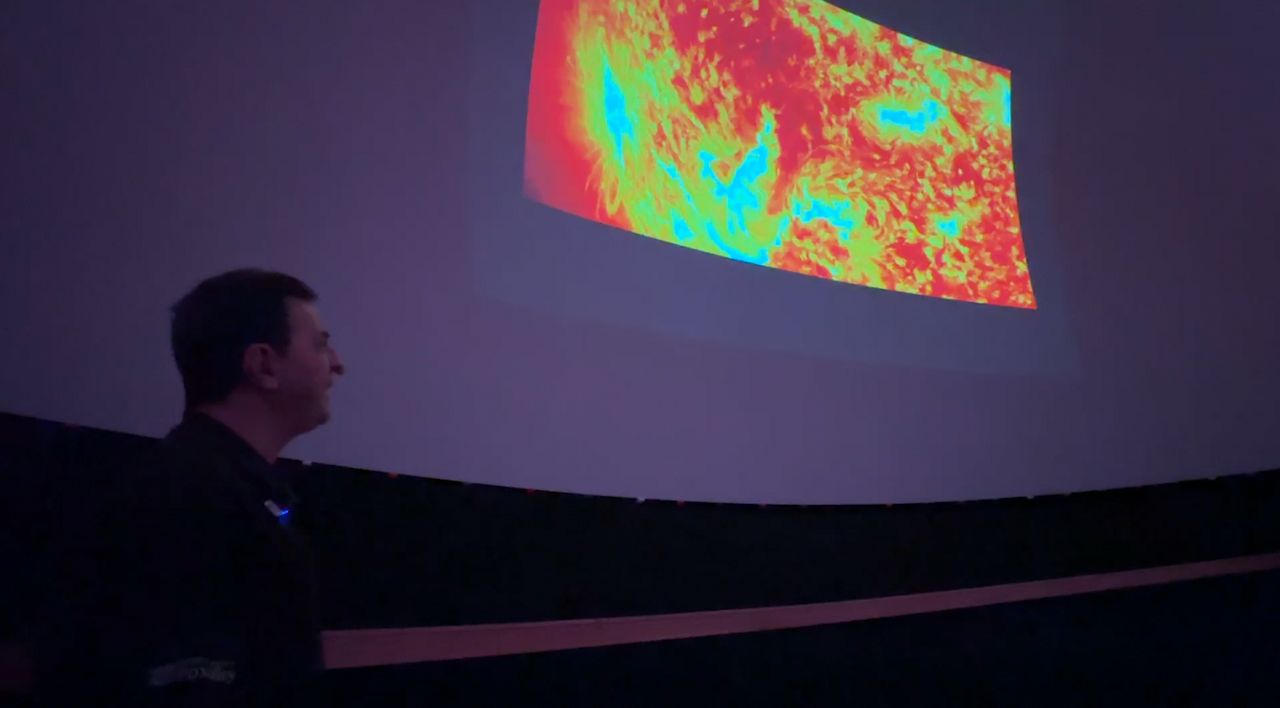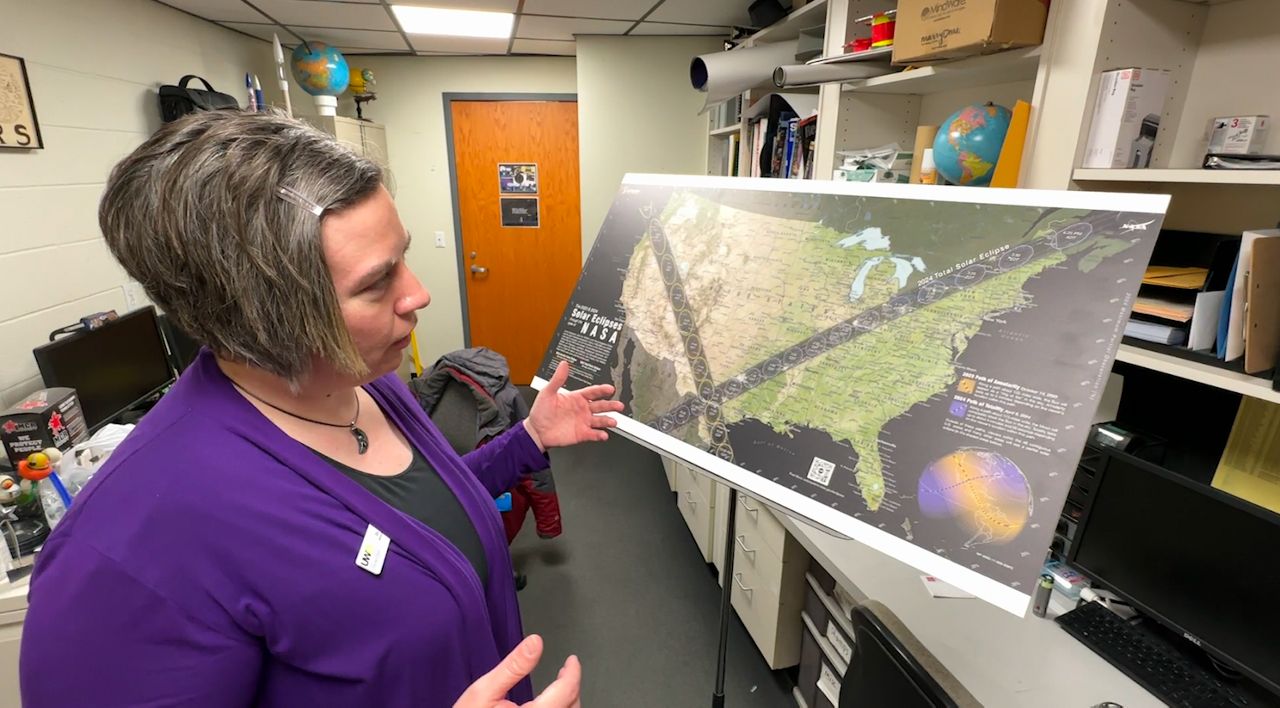MENASHA, Wis. — Ty Westbrook estimates he has provided a tour of the solar system and universe to more than 100,000 people over the years.
He’s the outreach specialist at the Barlow Planetarium on the University of Wisconsin Oshkosh Fox Cities campus in Menasha.
“We share the universe with the community at large,” Westbrook said. “My main job, I see a couple hundred school kids every day. Pre-K through twelfth grade. We take then through the solar system, we take then through the galaxy and we do astronomy education.”

Like many, he’s excited for Monday’s eclipse which will be total in some parts of the country.
“Words can not describe how exciting it is,” Westbrook said. “You’re standing in the shadow of the moon and it turns nighttime for you and bright stars come out.”
In Wisconsin, the eclipse will only be partial. People who want to watch the eclipse need to take precautions to protect their eyes.
Barlow Director Terri Gee said that includes using special glasses to watch the event.
“If you put on the glasses while you’re inside, you will see nothing,” she said. “They are so dark that you should not be able to see anything unless you turn on a really bright lamp. Then you might see a faint glow through the glasses. When you look at the sun, the sun will look orange because of the filter that’s being used.”
Regular sunglasses don’t provide enough protection.
“You’re basically saying, ‘Please burn my eye. Let me stare at it for a long time,’” Gee said.

Facing away from the sun, a colander, or a pin hole in a piece of paper can be used to project a shadow of the eclipse on nearby surfaces.
Westbrook said things like this eclipse highlight some of the cool astronomical events happing around us.
“Whenever there’s an astronomical event that’s happening, like an eclipse, people start to look to the skies and they start to look up and wonder what’s going on and enjoy it,” he said. “It’s a great time when you can share astronomy.”
Eclipse glasses are available for sale, starting at $4 dollars for a single pair, at the Barlow Planetarium beginning at 11 a.m on Monday.
It will also be showing the NASA live stream of the eclipse. Doors open at 12:45 p.m.



